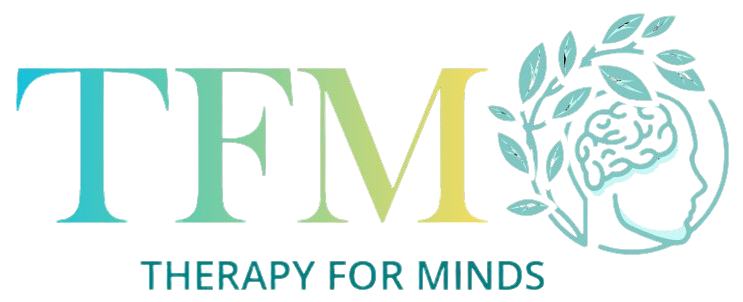Trauma and PTSD Therapy: Healing from the Past to Embrace a Brighter Future
Life can sometimes expose us to unimaginable hardships, leaving us with emotional scars that impact our well-being. Trauma—whether it’s the result of a car accident, sexual assault, military combat, or childhood abuse—can leave lasting effects on the mind and body. For some, these experiences lead to Post-Traumatic Stress Disorder (PTSD), a mental health condition that makes it difficult to heal from the pain of the past. However, with the right trauma and PTSD therapy, healing and recovery are possible.
At Therapy For Minds, we understand how devastating trauma and PTSD can be, and we are committed to providing high-quality, affordable therapy to help you navigate the complex process of healing. In this article, we’ll explore the nature of trauma and PTSD, how trauma therapy works, and how Therapy For Minds offers online therapy services that make emotional recovery accessible to all.
What Is Trauma and PTSD?
Trauma occurs when an individual is exposed to an event or series of events that overwhelm their ability to cope. These events are often unpredictable, intense, and outside the realm of everyday life. Trauma can occur in various forms, including physical, emotional, or psychological harm, and it affects individuals differently.
Post-Traumatic Stress Disorder (PTSD) is a mental health condition that may develop after an individual has experienced a traumatic event. Not everyone who experiences trauma will develop PTSD, but those who do often face significant challenges in moving forward. Individuals with PTSD may experience symptoms such as:
- Flashbacks or intrusive memories of the traumatic event.
- Nightmares or trouble sleeping.
- Avoidance of reminders or places associated with the trauma.
- Heightened arousal, such as irritability, anger, or difficulty concentrating.
- Emotional numbness or detachment from others.
It’s important to recognize that trauma and PTSD are not a sign of weakness. Rather, they are natural reactions to extreme stress, and the good news is that effective treatment is available to help individuals recover.
The Importance of Trauma and PTSD Therapy
Therapy plays a crucial role in the recovery process for individuals dealing with trauma and PTSD. Without treatment, trauma can manifest in many ways, from difficulties in relationships and work to physical symptoms like chronic pain and fatigue. Untreated PTSD can also increase the risk of developing depression, anxiety disorders, substance abuse, and even suicidal thoughts.
The goal of trauma and PTSD therapy is to help individuals process and make sense of their traumatic experiences, reduce the emotional impact of the memories, and develop healthier coping mechanisms. Therapy can help individuals reclaim control over their lives, build resilience, and reduce the debilitating effects of PTSD.
Effective Therapy Approaches for Trauma and PTSD
There are several therapeutic approaches that have been proven effective in the treatment of trauma and PTSD. These include:
- Cognitive Behavioral Therapy (CBT):
- Cognitive Behavioral Therapy (CBT) focuses on changing negative thought patterns that contribute to emotional distress. In the context of trauma, CBT helps individuals identify and challenge distorted thoughts related to the traumatic event, replacing them with healthier, more realistic thoughts. CBT can also include exposure therapy, where individuals gradually confront reminders of the trauma in a controlled, supportive environment.
- Eye Movement Desensitization and Reprocessing (EMDR):
- EMDR is a specialized therapy that helps individuals process distressing memories through a combination of bilateral stimulation (usually in the form of guided eye movements) and talk therapy. EMDR helps the brain process traumatic memories in a way that reduces their emotional intensity, making them easier to cope with.
- Trauma-Focused Cognitive Behavioral Therapy (TF-CBT):
- TF-CBT is a variant of CBT designed specifically for trauma survivors. It combines traditional CBT techniques with trauma-sensitive approaches to help individuals process trauma, develop coping strategies, and improve emotional regulation.
- Somatic Experiencing:
- This therapy focuses on the body’s physical responses to trauma. Somatic experiencing encourages individuals to become aware of physical sensations, helping to release the tension and trauma that may be trapped in the body.
- Narrative Therapy:
- Narrative therapy helps individuals make sense of their traumatic experiences by re-framing the story of their lives. It allows individuals to process trauma in a way that empowers them to regain control over their narrative and move forward with a renewed sense of agency.
Why Choose Therapy For Minds for Trauma and PTSD Therapy?
At Therapy For Minds, we offer online therapy services specifically designed to help individuals process and heal from trauma and PTSD. Whether you’ve experienced a recent traumatic event or have been carrying the weight of past trauma for years, our team of licensed therapists is here to help you navigate the healing journey.
Here’s why Therapy For Minds is the right choice for trauma and PTSD therapy:
- Expert Therapists:
- Our therapists specialize in trauma and PTSD therapy, using evidence-based approaches like Cognitive Behavioral Therapy (CBT), EMDR, and Trauma-Focused Cognitive Behavioral Therapy (TF-CBT) to guide you through the healing process. They are experienced in working with individuals from all walks of life and understand the unique challenges trauma survivors face.
- Affordability:
- At Therapy For Minds, we believe that everyone deserves access to quality mental health care. That’s why we offer affordable therapy services, making it possible for individuals to receive the support they need without financial stress.
- Convenience of Online Therapy:
- We understand that it can be difficult to find the time or energy to attend in-person therapy sessions. Our online therapy options make it easy for you to access therapy from the comfort of your home, allowing you to take control of your healing process at your own pace.
- A Safe and Supportive Environment:
- We provide a non-judgmental, compassionate space where you can explore your trauma, express your emotions, and begin the journey toward healing. Our therapists are trained to handle sensitive issues with care, ensuring that you feel safe and supported throughout the process.
Statistics and Facts on Trauma and PTSD
- According to the American Psychological Association (APA), 7-8% of the U.S. population will experience PTSD at some point in their lives.
- A study by the National Center for PTSD found that almost 8 million adults in the U.S. have PTSD during a given year.
- Women are more likely to develop PTSD than men, with 10-12% of women experiencing PTSD compared to 5-6% of men.
- Research shows that early intervention through trauma-focused therapy can significantly reduce the symptoms of PTSD and improve quality of life.
Conclusion: Begin Your Journey to Healing Today
If you’ve experienced trauma and are struggling with PTSD, it’s important to know that you are not alone, and recovery is possible. Trauma and PTSD therapy is essential in helping you process and heal from the emotional wounds of the past. At Therapy For Minds, we offer personalized, affordable therapy that’s tailored to your unique needs, so you can take the first step toward reclaiming control of your life.
Don’t let trauma dictate your future—reach out to us today to schedule an online therapy session and begin the healing process.





